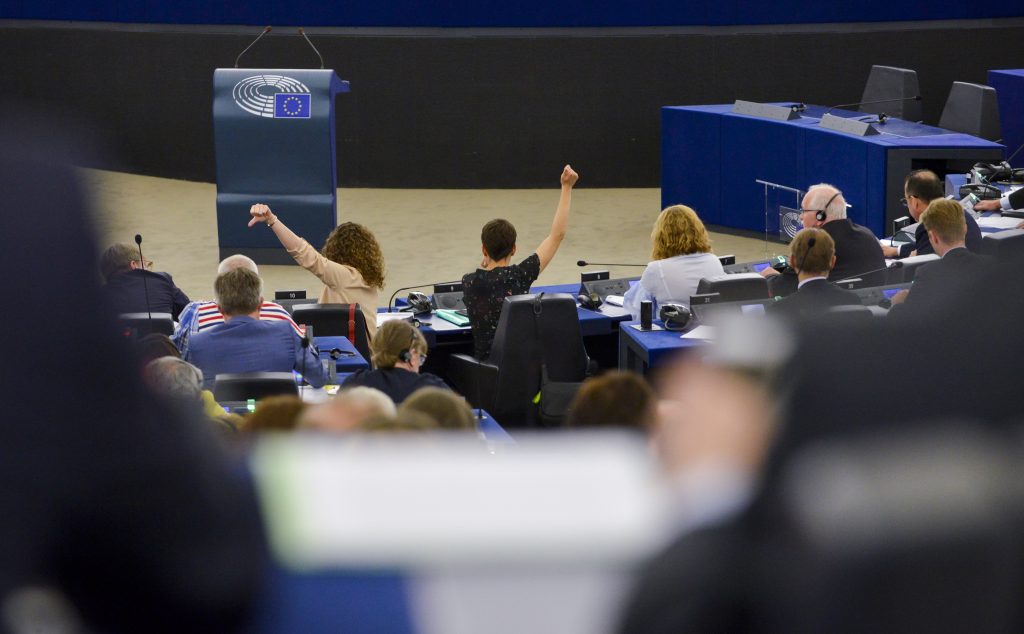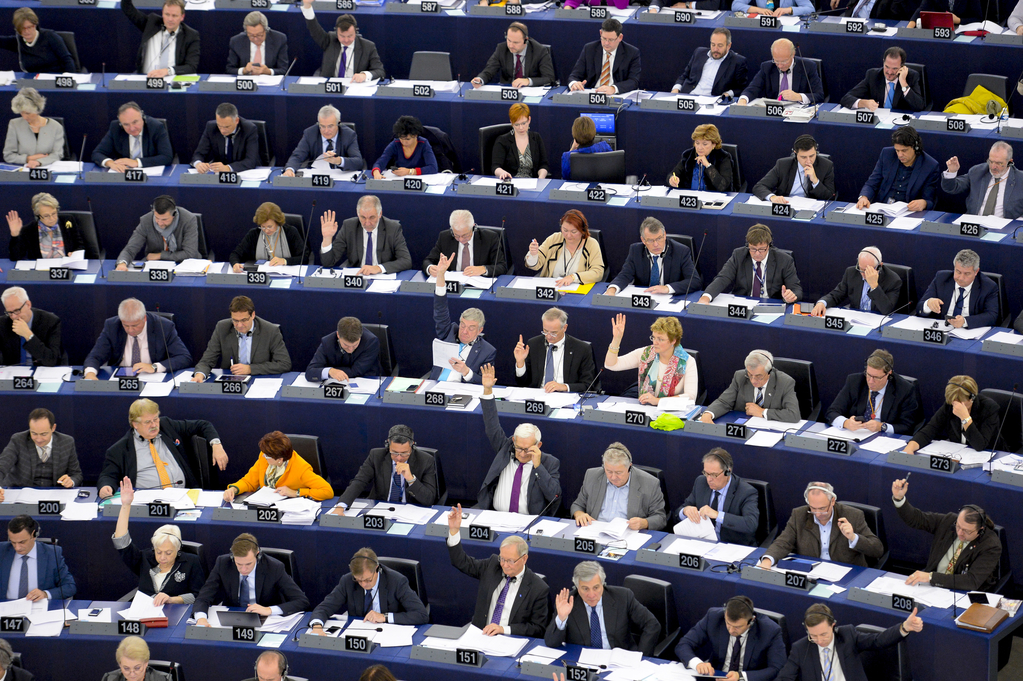The elections to the European Parliament are approaching and all political stakeholders are getting ready. Political parties are currently choosing who their candidates will be. Just last week, the Party of the European Socialists (PES) announced that Frans Timmermans will be its lead candidate for the European Elections 2019, the social democratic Spitzenkandidat. The elections in May 2019 are a key political momentum for the European Union: the composition of the European Parliament, as well as the persons at key decision-making positions in different EU institutions, such as the European Commission, will change. And in this regard, the rise of populism and the far right that we’re currently witnessing all over the world, including in Europe, is particularly concerning to EU supporters and democrats. How will the European Parliament look like next year?
Picture: © European Union, 2018
Amongst these questions, there is an important issue which tends to be overlooked in current public debates: what gender composition will the European Parliament have? The question is pertinent because even though women have achieved the right to vote and stand for elections (thanks to feminist suffragists’ fights), they are still grossly under-represented in most of the power and decision-making positions, including in Parliament. The question is even more relevant when considering the current political context: the increased support for populist and far right parties does not benefit gender balance, nor progress on gender equality. Indeed, these political parties are characterised by their anti-gender (and anti-EU) identity, and usually defend traditional gender roles and family structures. In the same line, data on the percentage of women and men Members of the European Parliament (MEPs) by each European political group suggests that left-leaning parties are better at assuring gender parity.
But where do we stand now? What is the current gender (im)balance in decision-making in the EU? According to data from the European Institute for Gender Equality (EIGE), only 20% of Constitutional Courts presidents, 22% of National Academies of Science presidents and members and 21% of Central Bank Governors deputy/vice-governors and members, across the 28 EU member states, are women. Women are also under-represented in the field of political decision-making: 37% of the Members of the European Parliament (MEPs) are women, and at the member state level, the percentage of women members of the National Parliaments is lower: on average, only 30% are women. Yet there are large disparities among member states.
Picture: © European Union, 2018
The low percentages of women in decision-making seem paradoxical when put alongside education statistics. According to Eurostat, 54% of all tertiary students in the EU are women (57% of Master’s and 48% of Ph.D.’s students). Having more highly educated women does not translate into more access to high-level positions. In fact, the progress in gender equality is very slow and not linear. According to EIGE’s 2017 Gender Equality Index, half of EU member states have reduced their score on one or more gender equality indicators in the last 10 years, which means that gender equality is shrinking in specific domains. For example, women’s power is one of EIGE’s gender equality indicators that has improved most in the last decade; however, it has one of the lowest scores as indicators, only achieving 48.5 points. All this data raises concerns with regards to the advancement of gender equality in Europe.
Having more women in EU political decision-making is not just a matter of numbers. Much more is at stake in this regard. Women make up half of the population and when this half is persistently under-represented, the functioning and legitimacy of the democratic system is put under question. Gender imbalance in the European Parliament and EU governing bodies and institutions constitutes a democratic deficit that needs to be addressed if we want to build a sustainable and strong EU. It’s the right thing to do, but it is also the smart thing to do. We need the talent, knowledge, skills, ideas… of all EU citizens to face new and old challenges in Europe. In this regard, embedding parity in all fields of society and specially in politics and in decision-making is important to progress.
Women make up half of the population and when this half is persistently under-represented, the functioning and legitimacy of the democratic system is put under question.
The recently published policy-paper “European Elections 2019: towards parity democracy in Europe” of G5+, the first European feminist think tank, presents a deeper analysis of the issue. The paper argues that the EU needs to move toward a system of parity democracy to truly embrace gender equality and set the right to equality as a fundamental principle in which democratic societies are based. It recalls and updates the arguments set at the Athens Declaration of 1992 adopted at the European Summit of Women in Power, in view of the current EU context. The May 2019 elections to the European Parliament provide an opportunity to move towards this direction, and political stakeholders and civil society need to seize it.
Indeed, the EU is a political space that citizens can shape, where they can and should participate to achieve better policies and a better life, after all. Recent examples, such as the male-dominated processes to choose European political parties’ lead candidates, among other, show that serious efforts are needed to advance gender balance and equality in the EU. Civil society and political stakeholders need to act against persistent gender inequalities in Europe. For that, reflection on what kind of EU we envisage is of paramount importance. Where would you like the EU to be in 5, 10, 50 years? And where do women stand in that future European context? Which EU do you want to build?



![Reproductive rights in Latvia: What sets alarm bells ringing for feminists – Reproduktīvās tiesības Latvijā: kas liek feministēm uztraukties [EN/LV]](https://www.youngfeminist.eu/wp-content/uploads/2015/12/reproductive-rights1-150x150.png)


Average Rating